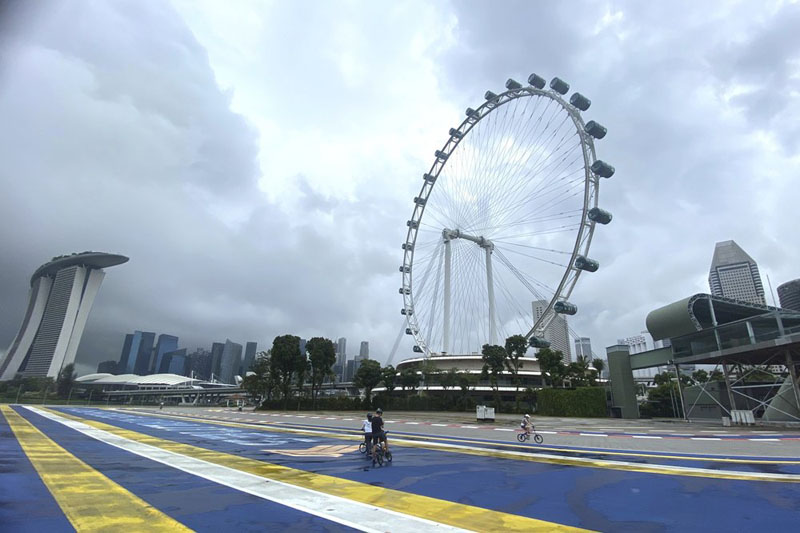

Singapore on Monday announced that its COVID-19 testing regime will be expanded after an increase in number of new coronavirus infections was reported last week.
Announcing a range of measures to check virus spread, Finance Minister Lawrence Wong said workers in more sectors will now have to undergo mandatory rostered testing, The Straits Times reported.
Previously, only workers in higher-risk settings such as food and beverage outlets, personal care services, and gym and fitness studios needed to undergo such tests.
The number of new infections last week doubled to more than 1,200, up from around 600 cases the week before.
Moving forward, retail mall workers, supermarket staff, last-mile delivery personnel, including parcel and food delivery workers, as well as public and private transport workers such as taxi drivers, private-hire car drivers and all public transport front-line staff, will have to undergo tests as well.
The frequency of such mandatory testing will also be increased from once a fortnight to once a week, said Wong, who co-chairs the multi-ministry task force handling the COVID-19 outbreak in Singapore.
These tests will continue to be administered primarily through the Employer Supervised Self-Swab Scheme.
The Government will subsidise the cost of all tests under this enhanced surveillance regime, for both vaccinated and unvaccinated individuals, until the end of this year, the Ministry of Health (MOH) said.
The Government will also issue health risk warnings (HRW) and health risk alerts (HRA) to individuals who may have been exposed once a cluster is identified, in addition to ring-fencing close contacts of infected cases.
Such warnings and alerts are not quarantined orders.
But individuals who receive a health risk warning will be required by law to get a Polymerase Chain Reaction (PCR) test and self-isolate until they receive a negative result for their first test.
They will also be required to do an antigen rapid test (ART) thereafter, and a PCR test on the 14th day.
Individuals who receive a health risk alert are not subject to actions required by the law, but are strongly encouraged to go for a PCR test as soon as possible.
For both HRW and HRA, individuals should reduce their social interactions for 14 days, said MOH.
“With all these measures, we hope that we can help to slow down transmission without having to go back to (a state of) heightened alert, or a circuit breaker,” Wong told reporters in an interview.
The MOH said Singapore’s high vaccination coverage has allowed the country to keep the rate of severe illnesses and deaths low among vaccinated individuals.
But unvaccinated individuals remain susceptible, over the last 28 days, 6.7 per cent of unvaccinated cases fell severely ill or died, it noted.
What is of concern to us is not just the absolute number of cases, but the rate at which the virus is spreading. Currently, the R (reproduction rate) is more than one. Cases are doubling every week. And if we continue on this trajectory of infection, it means we could have 1,000 cases in two weeks, or possibly 2,000 cases in a month,” the ministry said.
From the experience of other countries, when cases rise so sharply there will be many more cases in the ICU and more people succumbing to the virus, said Wong.
It’s not just the unvaccinated seniors. Because even for vaccinated persons, there will be a small proportion of them falling severely ill, and if you have a very high infection caseload, the small proportion will translate to a sizable number of ICU cases and eventually fatalities, local media quoted Wong as saying.
Singapore reported 241 new COVID-19 cases on Monday, taking the total infection count to 68,901. Fifty-five people have died from illnesses related to COVID-19.